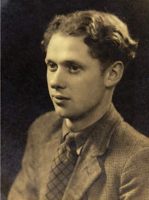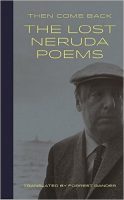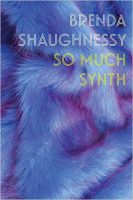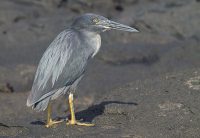May 12, 2016
Edited by David Sanders
Specimen Days
1828—Gabriel Dante Rossetti, England, poet/painter, Pre-Raphaelite figure, is born.
1914—Bertus Aafjes, Dutch poet/writer, is born.
1925—Amy Lowell, American poet (b. 1874), dies.
1933—Andrey Voznesensky, Russian poet, is born.
1967—John Masefield, British writer and poet (Salt-Water Ballads), Poet Laureate (1930-67), dies at 88.

Nothing is hidden that shall not be known.
Yet by no storm of scorn shall we
Be pried from this embrace, and left alone
Like muted shells forgetful of the sea.
Meanwhile, O load of stress and bother,
Lie on the shells of our backs in a great heap:
It will but press us closer, one to the other.
We are asleep.
—from “Dead Still” by Andrey Voznesensky (1933–2010)
“Nothing is hidden that shall not be known.” —from “Dead Still” by Andrey Voznesensky (1933–2010)
World Poetry
In the Footsteps of a Tang Dynasty Poet
The BMW private taxi shudders as it moves over the gritty unsealed road, its gleaming black body soon coated in loess dirt. Fang, the mild-mannered driver whose car I picked from a small fleet of taxis outside the station – some battered Hyundais, a few European models that looked out of place in the rugged loess terrain – says he bought the sedan last month. The station also looked too grand and modern a gesture in this ancient landscape, especially after the handful of travellers disappeared in a whirlwind gust into the surrounding country.
Tourists can now travel in the footsteps of Tang dynasty poet Du Fu.
Recent Reviews
A Small Story About the Sky by Alberto Ríos
by Ray McDaniel
I cannot remember now where I first heard it or from whom, but as a dismissal of poets and poetry it made an impression: a poet is someone who sees a bird outside their window and makes a big goddamned deal out of it. The claim neatly if rudely compresses a whole host of ascribed behavioral errors to the poet-type, who inflates the commonplace and mistakes their experience for something of, you know, value. However, this assessment works differently when it’s not a complaint made by someone with no use for poetry but a judgment made by one poet of another.
“A Small Story About the Sky” by Alberto Ríos is out now from Copper Canyon Press.
Broadsides
The Curious Case of the Vanishing Poet
by Fiona Zublin
One spring evening in 1957, two Americans sat in a Mexican cantina and talked throughout the night. One, 21 years old and full of artistic aspirations, would become the columnist Pete Hamill; the other was the mustachioed, erudite and long-vanished poet Weldon Kees. That’s how Hamill told it, anyway. Kees, once deeply ensconced in the American arts scene, had disappeared two years before the alleged meeting — a mystery that has dogged the literary scene ever since. Though largely forgotten now by academia, Kees has been resurrected by poets who, over the years, have rediscovered his work.
‘The Men of Art have lost their heart’: Poetry and the Hunger Strikes
by Seán Hewitt
In his poem, The Crime of Castlereagh, Bobby Sands turned his pen against the poetic establishment. Taking a form loosely based on Oscar Wilde’s Ballad of Reading Gaol, Sands detailed the conditions in the Long Kesh/Maze prison, and railed against the apparent silence of contemporary writers: “The Men of Art have lost their heart”. Many prisoners wrote poetry in the margins of the Bible or on cigarette paper, which could be folded small and was ideal for smuggling. Sands himself wrote with the refill of a Biro pen which he kept hidden inside his body.
Small is Beautiful: The Importance of the Chapbook
by Michael Young
All publishing poets know what chapbooks are. So, I’m not going to provide a history of the chapbook. The internet is full of good essays documenting that history. In fact, one brief essay can be found here on TheThe Poetry Blog by Sam Riedel. Here’s another link to one by the British historian, Ruth Richardson. What I want to draw attention to is the importance of the poetry chapbook and the folly of considering it as less significant than a full-length collection. A chapbook, which is basically any book with a page count under 48, will not be considered for any major prize.
The curious case of the long-vanished poet Weldon Kees.
Drafts & Fragments
Monty Python Star to Help Celebrate Poet's Day
by Mike Lewis

FISHGUARD and Goodwick will celebrate International Dylan Thomas Day on Saturday, 14 May, with poets, pancakes and a Monty Python star from Dinas. Thanks to a grant from Refreshing North Pembrokeshire, the twin towns will stage a number of events for the weekend.
Official Indy 500 Poet Performs Prize-winning Poem
Meet Adam Henze! Adam was picked from more than 200 poets to be the Official Poet for the 100th Running of the Indianapolis 500.
Poetry In the News
Hope Springs Eternal: Project to Save Alexander Pope’s Secret Grotto

It was a wonder of the western world: a tribute to the hidden grottos and secluded springs of classical mythology. Yet Alexander Pope’s great folly, a network of caves and tunnels built below his home on the banks of the River Thames at Twickenham, is largely forgotten.
Alexander Pope built a network of caves and tunnels below his home on the banks of the River Thames.
New Books
Then Come Back: The Lost Neruda by Pablo Neruda
[Hardcover] Copper Canyon Press, 160 pp., $23.00

Pablo Neruda's lost poems—recently discovered in his archive to the delight of readers and scholars—comprise this remarkable and essential volume. Originally composed on napkins, playbills, receipts, and notebooks, Neruda's lost poems are full of eros and heartache, complex wordplay and deep wonder. Presented with the Spanish text, full-color reproductions of handwritten poems, and dynamic English translations, Then Come Back: The Lost Neruda simultaneously completes and advances the oeuvre of the world's most beloved poet.
Aeneid Book VI: A New Verse Translation by Seamus Heaney
[Hardcover] Farrar, Straus and Giroux, 112 pp., $23.00
In this new translation, Heaney employs the same deft handling of the original combined with the immediacy of language and sophisticated poetic voice as was on show in his translation of Beowulf, a reimagining which, in the words of James Wood, "created something imperishable and great that is stainless–stainless, because its force as poetry makes it untouchable by the claw of literalism: it lives singly, as an English language poem.
Dare Say: Poems by Tod Marshall
[Paperback] University of Georgia Press, 72 pp., $18.95

Eschewing irony for direct statement, the poems in Tod Marshall's first collection imagistically, musically, and passionately articulate a faith in human transcendence. From the mud of our formation ("Choir") to the dust of our dying ("After Kandinsky"), Marshall's poems lyrically obsess over how the broken and violated can envision and speak a heaven of which we know.
Come In Alone by Anselm Berrigan
[Hardcover] Wave Books, 80 pp., $25.00
In Come in Alone, Anselm Berrigan plays with space like a painter with the prosody of a poet. Written as infinitely looping sentences around the page, the poems act as a frame to space, outrunning thought with quickness, openness, humor, and protest. They are simultaneously inviting and impermeable, making familiar language uncanny with every turn around the page.
So Much Synth by Brenda Shaughnessy
[Hardcover] Copper Canyon Press, 88 pp., $22.00

Subversions of idiom and cliché punctuate Shaughnessy's fourth collection as she approaches middle age and revisits the memories, romances, and music of adolescence. So Much Synth is a brave and ferocious collection composed of equal parts femininity, pain, pleasure, and synthesizer. While Shaughnessy tenderly winces at her youthful excesses, we humbly catch glimpses of our own.
“So Much Synth” is a brave and ferocious collection composed of equal parts femininity, pain, pleasure, and synthesizer.
Correspondences
How Poetry Helps Us Understand Mental Illness
by Corinne Segal
At the bottom of the sea, just off the coast of Maryland, New York City subway cars have become a new habitat for coral and fish. Poet Shira Erlichman was spellbound when she read about the project: to dispose of old, broken-down subway cars by sinking them to the bottom of the ocean, providing a new surface for coral reef to grow
Former Colo. Poet Laureate David Mason Goes Operatic For 'Scarlet Letter'
by Stephanie Wolf

Opera Colorado debuts "The Scarlet Letter" on Saturday at the Ellie Caulkins Opera House in Denver. The two-act opera is based on the famous Nathaniel Hawthorne 1850 novel of the same name, and had a number of financial setbacks that delayed its initial professional premiere in 2013. This adaptation could not exist without David Mason, a former Colorado poet laureate who now is a professor in the English Department at Colorado College. He wrote the libretto — the words in the opera.
Vietnamese-American Poet Contemplates his Personal Ties to the War
by Hari Sreenivasan
Tonight, Ocean Vuong, recently chosen for the prestigious Whiting Award. His new book, “Night Sky With Exit Wounds,” explores the legacy of the Vietnam War and the power of oral history.
Opera Colorado debuts “The Scarlet Letter” on Saturday at the Ellie Caulkins Opera House in Denver, with words by poet David Mason.
Envoi: Editor’s Notes
"the heron / Priested shore"

In honor of Dylan Thomas Day on Saturday:
Poem In October
It was my thirtieth year to heaven
Woke to my hearing from harbour and neighbour wood
And the mussel pooled and the heron
Priested shore
The morning beckon
With water praying and call of seagull and rook
And the knock of sailing boats on the net webbed wall
Myself to set foot
That second
In the still sleeping town and set forth.
My birthday began with the water-
Birds and the birds of the winged trees flying my name
Above the farms and the white horses
And I rose
In rainy autumn
And walked abroad in a shower of all my days.
High tide and the heron dived when I took the road
Over the border
And the gates
Of the town closed as the town awoke.
A springful of larks in a rolling
Cloud and the roadside bushes brimming with whistling
Blackbirds and the sun of October
Summery
On the hill's shoulder,
Here were fond climates and sweet singers suddenly
Come in the morning where I wandered and listened
To the rain wringing
Wind blow cold
In the wood faraway under me.
Pale rain over the dwindling harbour
And over the sea wet church the size of a snail
With its horns through mist and the castle
Brown as owls
But all the gardens
Of spring and summer were blooming in the tall tales
Beyond the border and under the lark full cloud.
There could I marvel
My birthday
Away but the weather turned around.
It turned away from the blithe country
And down the other air and the blue altered sky
Streamed again a wonder of summer
With apples
Pears and red currants
And I saw in the turning so clearly a child's
Forgotten mornings when he walked with his mother
Through the parables
Of sun light
And the legends of the green chapels
And the twice told fields of infancy
That his tears burned my cheeks and his heart moved in mine.
These were the woods the river and sea
Where a boy
In the listening
Summertime of the dead whispered the truth of his joy
To the trees and the stones and the fish in the tide.
And the mystery
Sang alive
Still in the water and singingbirds.
And there could I marvel my birthday
Away but the weather turned around. And the true
Joy of the long dead child sang burning
In the sun.
It was my thirtieth
Year to heaven stood there then in the summer noon
Though the town below lay leaved with October blood.
O may my heart's truth
Still be sung
On this high hill in a year's turning.
—Dylan Thomas